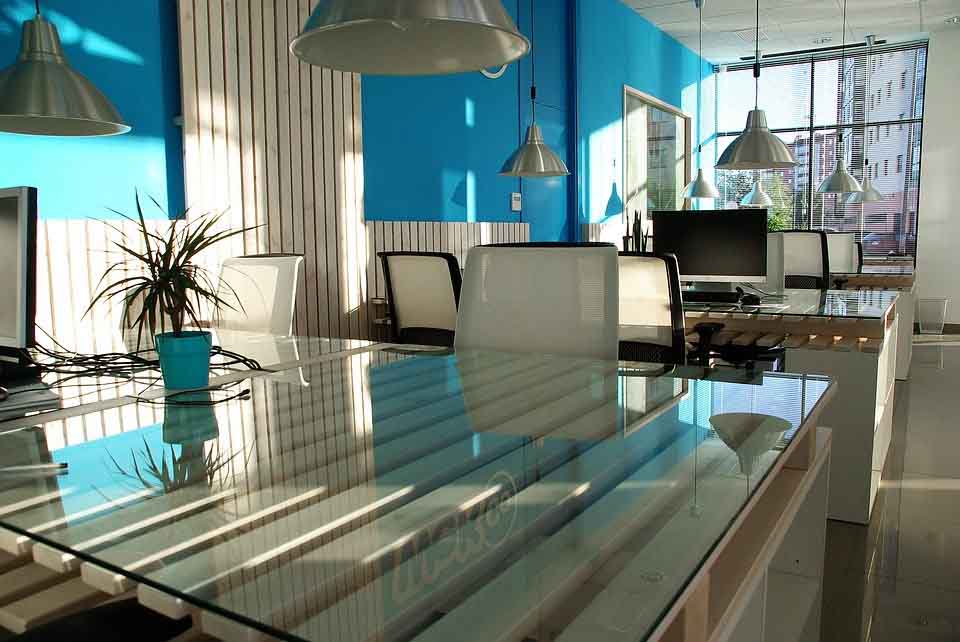Two of the focuses of my blog are Financial Literacy/Money and Business/Entrepreneurship. Once you start your business, if it’s successful, you will eventually have to think about expansion. The following contributed post is entitled, The Importance Of Making Expansion Plans For Your Business.
* * *
If you are a regular reader around here then you may have noticed that the three main topics of my blog are money, business/entrepreneurship and health/wellness.
In this day and age there are many aspects to consider when starting up your own business. You can run a successful start-up company from the comfort of your home which may then lead to needing to expand.
A lot of people start their own businesses through sheer desperation at being that unhappy in their current 9-5 job, that they make a leap of faith in starting their own venture. For some people it may have been something they had considered for a very long time before building up the courage and confidence to take the decision to quit their average job and take control of their future as an entrepreneur.
Not only is starting your own business a little daunting to say the least, but quitting your current job can be a very stressful thing, especially if you have dependents and commitments whether it be a mortgage, loan or your rent.
However, before making the decision to jump straight in, it’s important to understand that timing is everything. You need to make sure that you have all of your affairs in place for your new venture before deciding to take out the safety net that is your regular guaranteed income.
The absolute first thing to make sure of is to be confident that you know your business will work. You need to know where your business will fit into the market and you need to have made a plan to progress once you get there.
A business plan is a must, without one your business will probably fail before you have even properly started. A well thought out business plan will help you to maintain a company direction, to spot potential pitfalls before they arise and to set realistic business targets.
Depending on the type of business you go into, part of your business plan may involve future proofing your business with the possibility to expand out of your home office or shared business space.
Shared business spaces are really popular and they are invaluable with start ups where there may be limited funding. They aren’t a long term solution though and this needs to be considered – which leads back to your business plan.
Expansion of your business should be a very important part of your business plan, these could include:
1. Adding to your existing line of goods and services
2. Targeting your existing customer base to sell more products
3. Look for a new customer base to add to your existing one
4. Discover new sales channels
5. Merge with another business or acquire them
Well established high street businesses are turning to opening online stores to help strengthen their core business and this is where start ups hold the advantage. There will become a point where you will master the online store or online services and will need to look into expansion in the form of bricks and mortar, an office and/or warehouse to help future your business growth.
The type of space you will need will depend solely on the type of business you run. For an online services only business, a business space without the need for storage is relatively easy to come by. As a start up, running an office from a residential premise is widely accepted providing you follow the guidelines set out by your local government.
There are some major advantages to having a residential space as your office. However, the disadvantages quickly start to add up as and when your business starts to grow. Client meetings at your home ‘office’ may put potential new clients off as it is not the most professional look to hold a meeting in your house. As with most residential places, parking is also as adequate as you would find in a commercial space.
However if you are a start up with ‘movement of goods’, then this will then turn your residential premise into a commercial premise. This means you will then require approvals and licences from your local government and authorities. If your business is deemed as being commercial this could also impose additional property tax on your residential address, even water and electricity bills could incur additional fees based on being a commercial space.

https://pixaby.com/photos/office-space-office-sunny-coworking-1744803
This is why part of your business plan should include the possibility of expansion of your business through the need for a commercial office space.
When thinking about the type of commercial space needed to run your business, it is also a good idea to think about the maintenance and upkeep costs associated with having a commercial space and who this falls to to maintain.
Depending on the size of your space, this could have huge financial implications with your yearly costs. Most residential properties use asphalt shingles, whereas commercial properties will vary greatly in the materials used.
Without being a trades worker, you will struggle to identify all of the hidden costs associated with your space so it is best to choose skilled companies who can take on the hard work for you which will help to bring down on your maintenance costs.
For example, choosing the right commercial roof repair can impact how much you spend or save per year. Pick the right company and they can help you to reduce your yearly costs through using the best energy saving materials.
The key to success in any expansion is to recognize what your limitations are. This is specific to you and your business. Long before you make any firm decision, plan a worst-case scenario of how much the expansion will cost and how many resources it will take to get to that point.
If a business tries to grow too quickly, it can lead to failure. Which makes it so important to plan carefully for the day you’ll expand and only make the move once you’re sure you have the resources to handle it.

